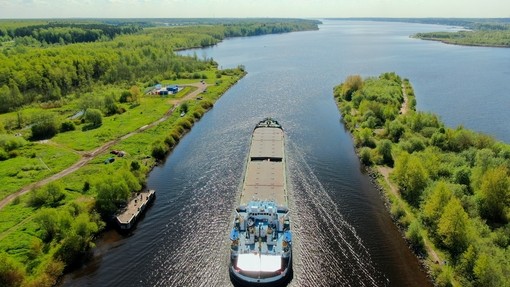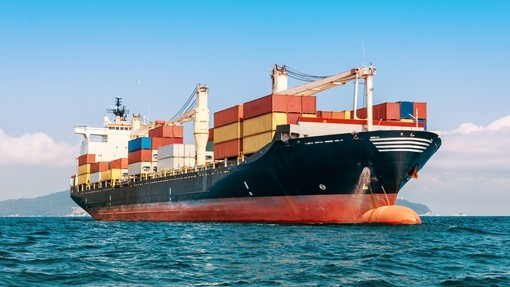(1) ST Shipping and Transport Pte Ltd, (2) Glencore International AL AG, and (3) Glencore PLC -v- (1) Space Shipping Ltd and (2) Psara Energy Ltd [2018] EWHC 156 (Comm)

Details
In this High Court case, Mr Justice Teare had to consider stakeholder relief (previously ‘interpleader’ proceedings under which the debtor acknowledges that one of the conflicting creditors is entitled to funds which it is holding which are usually paid into court which then hears the claims of the creditors without involving the debtor) under Civil Procedure Rules (CPR) part 86, the effect of rule B proceedings in the US and third party debt orders (previously ‘garnishee’ – under this procedure a judgment creditor attaches funds held by a third party for the account of the judgment debtor) where there were conflicting claims.
Factual background
In 2010 the “CV STEALTH” (the vessel) was bareboat chartered by its registered owners Psara Energy Ltd (Psara) to bareboat charterers Space Shipping Ltd (Space) for a period of five years. In 2014 Space chartered the vessel to ST Shipping and Transport Pte Ltd (STS) for a period of about eight months. STS’ obligations were guaranteed by Glencore group companies (Glencore). In 2014 STS directed the vessel to Venezuela. On 19 September 2014 the vessel was detained while waiting to load cargo.
The detention of the vessel gave rise to a number of claims which were referred to arbitration in London. Psara obtained four arbitration awards against Space and Space obtained seven arbitration awards against STS.
On 8 December 2016 Psara and Space entered into a settlement agreement according to which (i) the first $4 million paid by STS to Space would be retained by Space, (ii) the next $1,787,375 reflecting 181 days’ hire would be assigned to Psara, and (iii) any further sums would be paid to Space. On 5 July 2017 Psara gave notice of this assignment to STS.
In November 2017 Space made a demand on Glencore who had issued a letter of undertaking (LOU) to Space in which Glencore agreed to pay Space monies due from STS. The demand took no account of the assignment.
On 1 November 2017 Psara obtained from the US District Court of Connecticut which attached/garnished the debts of STS to Space. Shortly afterwards, on 20 November 2017, the order was vacated on STS’ application. Psara have appealed against this decision but their applications for a stay of the order vacating the rule B attachment have been refused by the court of first instance and the US Court of Appeals.
On 20 November 2017, Space accepted that $1,787,375 of a stakeholder account, held by STS’ solicitors to the order of the court, could be paid to Psara. Space accepted that the sum had been assigned to Psara, but disputed the scope of the assignment. That issue was determined in the third award and Psara now accept that they had no further claim pursuant to the assignment.
Legal issues
On 20 November 2017 STS and Glencore issued stakeholder proceedings. They said that, although the assignment point had been resolved and the rule B attachment order had been vacated, they feared that if they were to pay the sums due to Space under the arbitration awards they might be exposed to having to pay them again to Psara. Space asked the court to order that the sums held in the stakeholder account should be paid to them. Psara said that the court should order a trial of the issue as to whether Psara had a proprietary claim on the debt owed by STS to Space.
The judge considered three legal issues:
Issue 1 - was this a stakeholder claim falling within CPR part 86?
CPR part 86 applies to competing claims. Space submitted that there were no competing claims, firstly because they had an arbitration award which was not a ‘claim’, and secondly, because part 86 applied where there were actual or envisaged proceedings in the English Court, and Psara had commenced proceedings in Connecticut. The judge held that while a ‘claim’ envisaged proceedings before the English court but he considered that part 86 extended to claims made outside the English court.
In support of their submission that they were not to be regarded as having a claim because they had an award, Space relied on the case of H. Stevenson & Son -v- Brownell [1912] 2 Ch 344 which concerned competing claims to royalties where a consent judgment had been obtained in the United States. It was too late for interpleader proceedings to be brought. In distinguishing the former, the judge held that it did not prevent the present case from being one of competing claims within the meaning of CPR part 86. The present case did not concern rival claims by two persons claiming to be entitled to be paid hire under a charterparty, Psara’s claim was in the nature of a proprietary interest arising out of the rule B proceedings. Further, Space were not judgment creditors. They had awards but not judgment. As a consequence, while they had a contractual right to payment of the awards by STS, they were not entitled to enforce a judgment in the manner in which the company was in Stevenson -v- Brownell.
It was also argued that Glencore were not entitled to issue a claim for stakeholder relief because only one claim was brought against them under the LOU. The judge disagreed and said that the LOU was a contract of surety and that it seemed sensible that both the primary obligor and the surety were made party to the stakeholder claim.
It followed that the stakeholder claim was properly issued.
Issue 2 - Should the court order that the sums in the stakeholder account be paid out to Space?
Space argued that the rule B attachment proceedings were analogous to a claim for a freezing order in this jurisdiction and that they should not be used as a means of preventing Space from recovering the sums which the tribunal had ordered STS to pay. The judge accepted that the rule B attachment proceedings were a means by which assets were preserved so as to be available for future execution of a claim when that claim had been established. To that extent there was an analogy with a freezing order. However, the analogy should not be taken too far. It was the nature and the effect of the attachment which mattered and gave rise to the competing claim. Therefore, a rule B attachment could amount to a competing claim. However, since the rule B attachment order had been vacated in the present case, there was no enforceable attachment of the debt owed by STS to Space. The attachment was contingent upon the appeal succeeding.
The judge held that the sum in the stakeholder account should be paid to Space. This would not put STS at risk as Psara were a party to stakeholder claim and would be estopped from contending that they (rather than Space) were entitled to the debt, in the event that the court ordered that the sum in the stakeholder account be paid out to Space in satisfaction of the debt owed by charterers. In addition the judge noted that the courts in the US had not stayed the order lifting the rule B attachment and therefore, matters could take their course.
Issue 3 - The third party debt orders
Psara sought third party debt orders against the sum in the stakeholder account in respect of their awards which had been registered as judgments by orders of Popplewell J. shortly before the interpleader hearing. Space did not dispute the making of the orders, but claimed that the entire sum in the stakeholder account should be paid out to them as they had obtained their award first.
The judge held that in circumstances where Space maintained that they would pay the sums indisputably due to Psara, it was fair and equitable to ensure that it was done in such a manner which saved the parties from incurring further costs. This could be achieved by ordering that the sum indisputably due to Psara be paid to them and that the balance be paid to Space.
Case comment
This case provides useful guidance on the meaning of the word ‘claim’ under CPR part 86. The judge observed that although there was no overarching definition of ‘claim’ to be found in the CPR, he accepted that there had to be many references to ‘claim’ in the CPR which meant proceedings before the English court – unless the context otherwise required, as it did in the present case.
It is interesting to also note that in the present case the parties had agreed to the stakeholder application, since in light of the Cool Carriers AB -v- HSBC Bank USA [2001] 2 Lloyd’s Rep. 22 the court would not have had the power to order service outside the jurisdiction for interpleader relief nor would have had jurisdiction over the foreign stakeholder defendants. This co-operation enabled the court to reach what appears to be a fair and realistic decision.
This article originally appeared in the March 2018 edition of shipping case digest. Other articles include:






